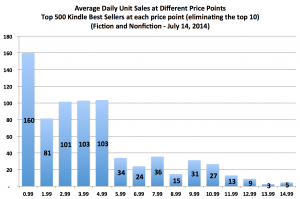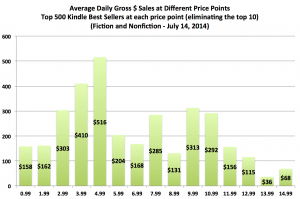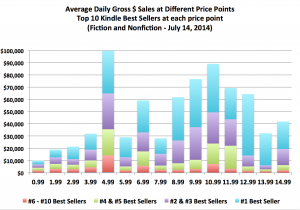Jennifer Becton's Blog, page 26
August 7, 2014
Watch Outlander Online NOW
So Outlander , a little series by Diana Gabaldon, is now a TV series. Watch part 1 now (no subscription needed).
, a little series by Diana Gabaldon, is now a TV series. Watch part 1 now (no subscription needed).
The post Watch Outlander Online NOW appeared first on Becton Literary.
Kindle Stuffing (www)
People are no longer loading up their Kindles with free and $.99 ebooks. What’s an author to do?
The post Kindle Stuffing (www) appeared first on Becton Literary.
Amazon Expands Same Day Delivery (www)
Amazon is expanding same-day delivery to six more cities and into the burbs.
The post Amazon Expands Same Day Delivery (www) appeared first on Becton Literary.
BN and Google Play Catch up (www)
BN and Google team to make same-day delivery possible in Manhattan, West Los Angeles and the San Francisco Bay Area. Google Shopping also teams with Costco, Walgreens, Staples, and Target.
The post BN and Google Play Catch up (www) appeared first on Becton Literary.
August 4, 2014
The Hit List
Authors battle to get their rights back from Harlequin in class action lawsuit. Shenanigans employed. Harlequin should be ashamed.
Court approves . Is money coming your way?
US leads world in ebook lending. Given that the US also leads in ebook selling, that doesn’t seem all that shocking.
In Whiteley Press news, the books in the Personages of Pride & Prejudice Collection are now part of the Kindle Owners Lending Library and are available on Kindle Unlimited.
The post The Hit List appeared first on Becton Literary.
August 2, 2014
Personages of P&P Available on Kindle Unlimited
The Personages of Pride and Prejudice Collection is now available on Kindle Unlimited and in the Kindle Owners Lending Library.
Right now you can get a free 30-day trial of Kindle Unlimited, Amazon’s new subscription service.
Or you can check out one of these books from the Lending Library for free.
The post Personages of P&P Available on Kindle Unlimited appeared first on Becton Literary.
August 1, 2014
Ebook Pricing: Is $4.99 the Sweet Spot?
The person known as “Data Guy” who crunches the numbers at AuthorEarnings.com left a comment at The Passive Voice regarding ebook price points:
$9.99 ebooks outsell $14.99 ebooks by a huge margin in units

http://authorearnings.com/wp-content/...
$9.99 ebooks outsell $14.99 ebooks by a huge DOLLAR margin, too, despite their lower price

http://authorearnings.com/wp-content/...
Even when looking only at the Top 10 (outliers) for each price point, the pricing sweet spot at $9.99 or above seems to be $10.99 (with $9.99 running a close second).
The Top 10 bestselling ebooks at $12.99 and $14.99 generate fewer gross DOLLARS (as well as selling fewer units) than the Top 10 at $9.99 and $10.99.

http://authorearnings.com/wp-content/...
But… $4.99 beats $9.99 in every category. It sells more units AND brings in more gross DOLLARS than any other price point. This is true even for the Top 10 Best Selling outliers at each price point.
The Top 500 Best Selling Kindle books priced at $4.99 are out-earning those at $9.99, $10.99, $12.99, $14.99, and every other price point.
(Below the Top 10, $3.99 runs a close second to $4.99.) Go here to read more.
I’ve blogged before about the pricing sweet spot, the price point that provides both maximum sales (for visibility) and maximum revenue. According to this chart, the sweet spot has increased since I began publishing in 2010. At that time, $2.99 was the sweet spot. Then, it increased to $3.99. Now, hey presto: $4.99.
This is the exact opposite of what everyone feared. People have been so concerned that $.99 ebook prices would essentially make content worthless, but that does not appear to be bearing out in reality.
Good news for authors!
The post Ebook Pricing: Is $4.99 the Sweet Spot? appeared first on Becton Literary.
July 30, 2014
Hard Data: Amazon v. Hatchette Update
Ordinarily, I would link straight to the text, but there is vital information here, and you should read it even if you don’t care about the Amazon v. Hatchette nonsense. Look at the numbers.
Let me sum up and quote:
Amazon favors lower ebook prices, which result in higher sales and profits for themselves, authors, and the publisher. Here is their data:
It’s also important to understand that e-books are highly price-elastic. This means that when the price goes up, customers buy much less. We’ve quantified the price elasticity of e-books from repeated measurements across many titles. For every copy an e-book would sell at $14.99, it would sell 1.74 copies if priced at $9.99. So, for example, if customers would buy 100,000 copies of a particular e-book at $14.99, then customers would buy 174,000 copies of that same e-book at $9.99. Total revenue at $14.99 would be $1,499,000. Total revenue at $9.99 is $1,738,000.
The important thing to note here is that at the lower price, total revenue increases 16%. This is good for all the parties involved. (Emphasis added.) Read the full article here.
Amazon doesn’t flaunt its numbers, so when it does, take note. Most indies are not working at these price points, but it is valuable information nonetheless.
Read Barry Eisler’s take on this.
The post Hard Data: Amazon v. Hatchette Update appeared first on Becton Literary.
July 29, 2014
If Amazon Goes to the Dark Side
Every time someone in Amazon’s publishing sector sneezes, indie authors seem to freak out.
Hey, you are entitled to your freak out. Go ahead. Panic! Get it all out.
Okay, that’s done.
Let’s discuss indie authors’ fears and then what will happen if/when they come to pass.
Fears (from an indie author’s perspective)
Amazon will become too powerful by gaining too much market share of the book industry.
In order to earn a living, authors will be forced to enroll in KDP Select and sell exclusively through Amazon.
A majority of authors will sell exclusively through Amazon, allowing the company to gain a monopoly on books.
OR
Amazon will put all of its competition out of business and become the only bookseller left in the game.
Either scenario produces the same results:
With no competition, Amazon will be free to raise book prices, lower royalty rates, change their algorithm, or take some other action that negatively impacts indie authors.
Authors will experience decreased visibility and sales and no longer be able to make a living, but due to Amazon’s monopoly, they will have no other sales options.
In essence, indie authors (and consumers) fear that Amazon will become too powerful and then abuse their power. Book prices will skyrocket, royalties will tank, and Amazon will whistle on its way to the bank.
Look, it could happen. (To clarify, I don’t believe a true monopoly can exist without government intervention. There is no way to destroy ALL competition unless force is involved.) But Amazon could certainly decide to change its policies and/or exploit its resources and put itself, its customers, and its authors in a world of hurt.
So what if Amazon will not exist forever? Lots of big companies have fallen by the wayside without complete societal collapse. IBM used to mean computers. But when PCs started to come about, the company made several mistakes and ended up basically disappearing from the landscape. As a result of their bad choices, IBM shrank at a time when the computer industry as a whole exploded. In 1985, it employed 400,000 people, but by 1995, it had shrunk to 225,000 employees. Lots of people lost their IBM jobs, but they went to other computer companies that sprang up and that did not misjudge the market.
And what about Kodak? Kodak was cameras, but they did not innovate as technology changed. In 1976, Kodak had 90 percent of film sales in the US and 85 percent of camera sales in the US. That’s as close to a monopoly as you can possibly get. Now, they basically peddle photo paper. Its former employees probably went on to work at photo companies who embraced digital advancements. But either way society did not fall, and photography still exists.
No company is eternal. All companies follow a life cycle, but some get more years than others. Company X starts small, maybe in a garage, and even though it doesn’t have the resources of the big guys, it’s innovative and works hard to please customers. Soon, they expand, and they innovate and please even more customers. Then, their hard work is rewarded, and they become popular. In fact, they become one of the big guys. Then, something changes. Maybe someone gets greedy, a new CEO takes over and makes mistakes, they stop innovating or take their customers for granted, or a competitor shows up and does things better. Company X, who is now a huge entity in the market, goes into decline. (This South Park episode has a great montage around the 21 minute mark on this subject.)
So let’s say Amazon goes bad, and authors can no longer make a living selling through them. Yeah, it will suck. It will suck hard. Authors would be essentially losing their jobs. But that’s not going to be the end of the story.
If Amazon exploits authors and raises book prices, it will open the door to competition. Someone somewhere will seize the opportunity. If conditions are so bad at Amazon, all the anxious authors and angry readers will leap at the chance to try out this new enterprise. As a result, we’ll be back to high royalties and low book prices.
And then people will begin to fear what might happen if that company gets too powerful….
The post If Amazon Goes to the Dark Side appeared first on Becton Literary.
July 28, 2014
Author Earnings at BN; Indies Dominate
The post Author Earnings at BN; Indies Dominate appeared first on Becton Literary.



